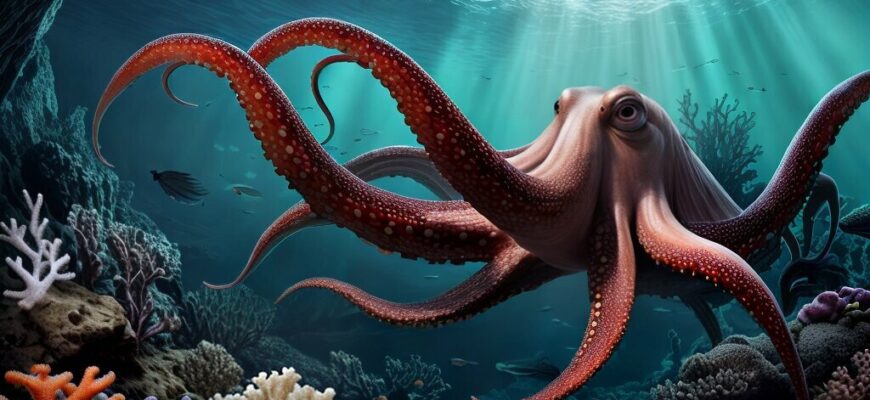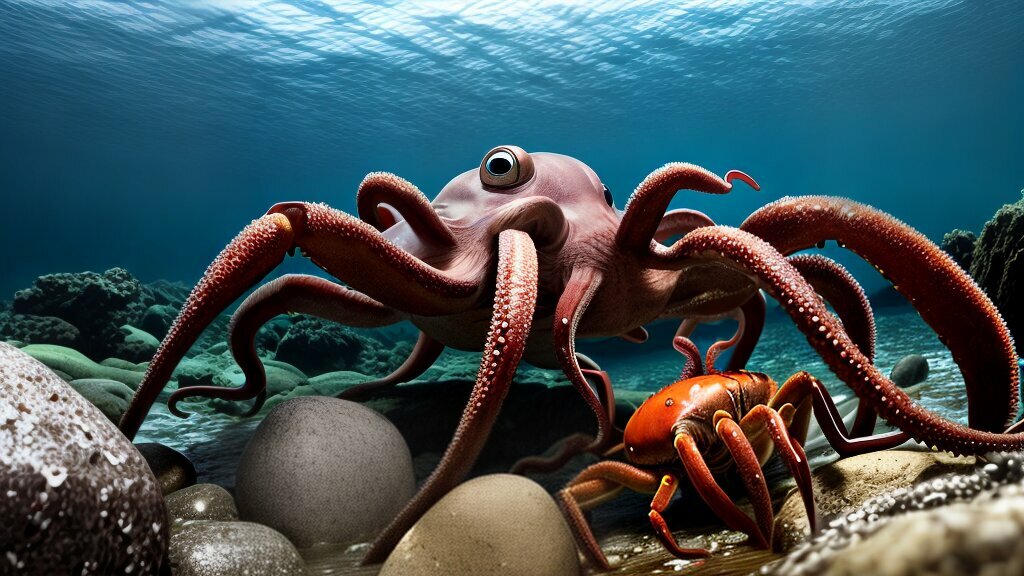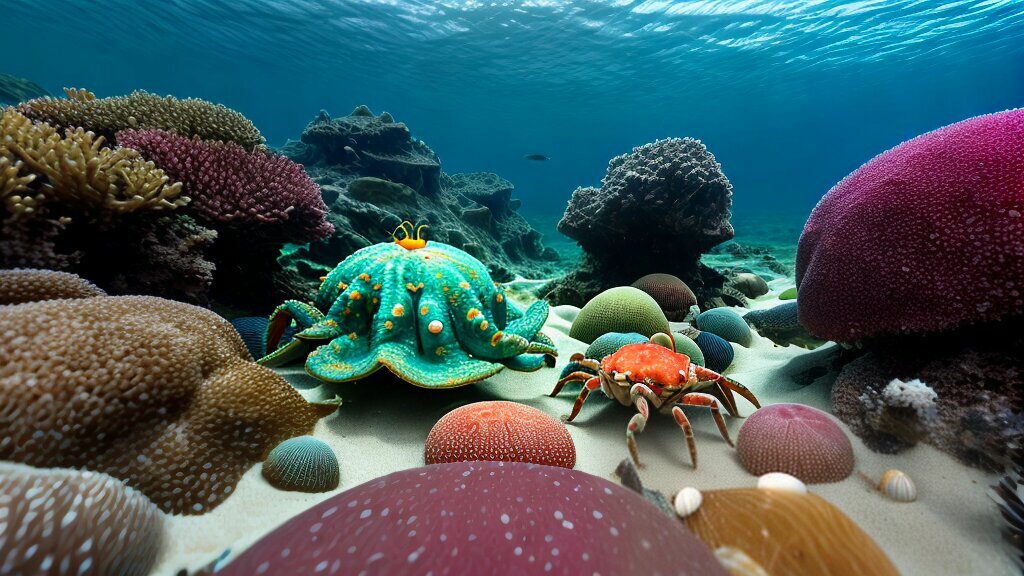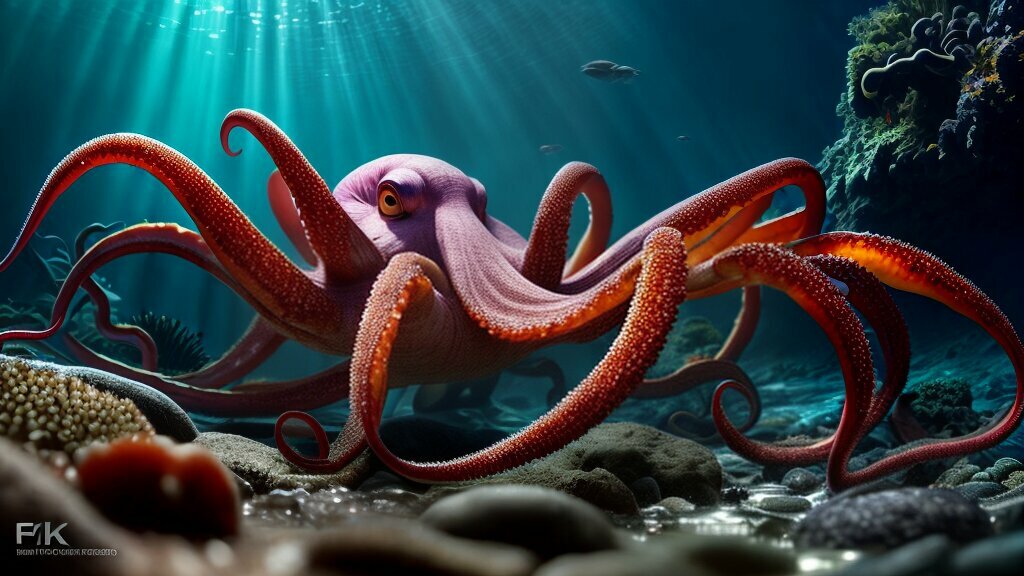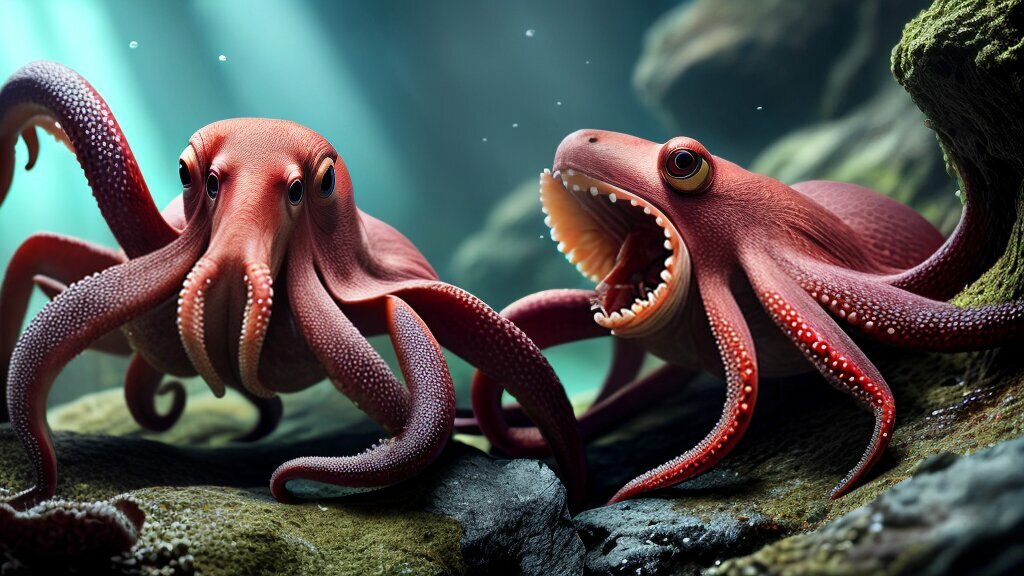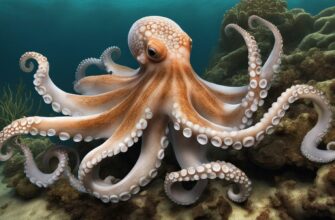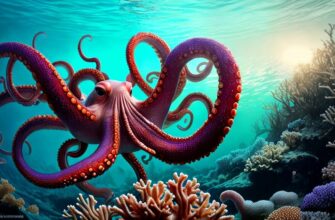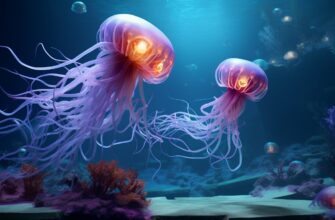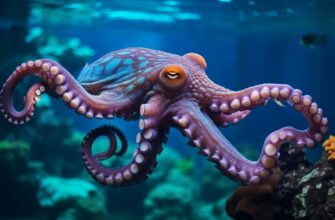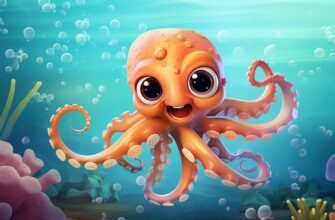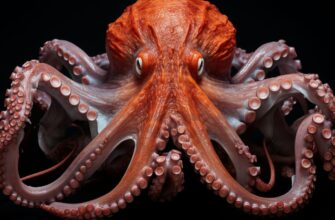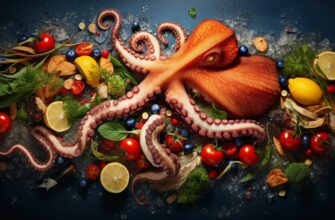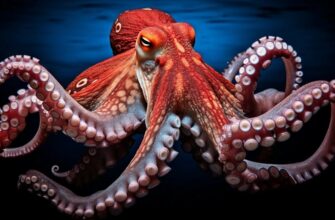Octopuses are fascinating creatures that inhabit the depths of the ocean. With their eight tentacles, they have been known to grasp and consume a variety of marine life. But, do octopuses eat crabs? This question has intrigued marine biologists for years, and in this article, we will explore the answer.
Before we delve into the specifics of octopuses and crabs, let’s first explore the general feeding habits of octopuses. As carnivorous creatures, octopuses prefer live prey and have been known to adapt to different types of food sources. With this knowledge in mind, we can examine whether crabs are a potential food source for these creatures.
Key Takeaways:
- Octopuses are fascinating creatures that inhabit the depths of the ocean.
- The question of whether octopuses eat crabs has intrigued marine biologists for years.
- Octopuses are carnivorous and prefer live prey, but can also adapt to different food sources.
Octopus Feeding Habits
Octopuses are carnivorous creatures with a preference for live prey. Their feeding habits vary depending on their species and habitat but generally follow a similar pattern. They use their tentacles to capture and manipulate food, which is then brought to their beak-like mouth for consumption.
One interesting aspect of octopus feeding habits is their ability to adapt to different food sources. They have been known to consume a wide variety of marine life, including shrimp, fish, and even other octopuses. This flexibility is due to the fact that their diet is not based on taste preferences but rather on what is available in their environment.
Despite their ability to adapt, certain prey items, such as crabs, are particularly appealing to octopuses. Crabs are a common food source in octopuses’ natural habitats and offer a high nutritional value. They are rich in protein and essential nutrients that are beneficial for the growth and development of octopuses.
Octopuses have been observed using a variety of hunting strategies when targeting crabs. They are able to camouflage themselves to blend in with their surroundings, making it easier to sneak up on their prey. Their agility and flexible tentacles also come in handy when securing crabs, which can be quite nimble themselves.
Additionally, some octopus species have developed adaptations specifically for crab hunting. For example, the mimic octopus is known for mimicking other animals, such as crabs, to lure in their prey.
Overall, octopuses have a diverse and fascinating feeding pattern that reflects their adaptability and intelligence. Their ability to consume a wide variety of marine life ensures that they remain a vital part of marine ecosystems.
Crab as Potential Prey
Octopuses are known for their carnivorous diets, and crabs are a potential food source that they may consume in the wild. Crabs offer a variety of nutritional benefits, including protein, vitamins, and minerals, making them an ideal prey item for these creatures. Plus, crabs are abundant in many of the same habitats where octopuses reside, providing easy access to food.
When hunting for crabs, octopuses use their powerful tentacles to capture and hold their prey. They may also use their camouflage abilities to blend in with their surroundings and surprise unsuspecting crabs. Once they have secured their meal, octopuses will use their sharp beaks to break through the hard outer shell of the crab and access the meat inside.
Despite their ability to consume crabs, octopuses may not rely on them solely for sustenance. These creatures are known for their dietary flexibility and may consume a variety of other prey items, depending on what is available in their environment. Additionally, some octopuses may exhibit selective feeding behaviors, only consuming certain parts of the crab or targeting specific species.
Overall, crabs are a valuable food source for octopuses, providing essential nutrients and contributing to the balance of marine ecosystems. As with many aspects of nature, however, the relationship between octopuses and crabs is complex and multifaceted, and further research is needed to fully understand the intricacies of this dynamic.
Octopuses and Crab Hunting
Octopuses are known for their impressive hunting abilities and are often observed preying on a variety of marine animals, including crabs. These cephalopods use a multitude of tactics and adaptations to secure their prey, and crab hunting is no exception.
One of the key techniques that octopuses employ during crab hunting is their camouflage capabilities. By changing the color and texture of their skin, octopuses can blend in seamlessly with their surroundings, making it easier to approach and capture unsuspecting crabs. In fact, some species of octopuses are so adept at camouflage that they can remain effectively invisible even when moving across open ground.
Another important adaptation for crab hunting is the use of their eight tentacles. Octopuses can hold their tentacles out in front of them like a net, waiting for a crab to come within reach. Once a crab is close enough, the octopus can quickly wrap its tentacles around the crab and immobilize it, preventing it from escaping.
Octopuses are also highly agile and can move quickly and unpredictably, making it difficult for crabs to avoid being captured. They can use their tentacles to propel themselves forward and make sudden, sharp turns to catch crabs off guard.
Some species of octopuses have even developed specialized adaptations for crab hunting. For example, the mimic octopus can imitate the appearance and behavior of a crab to lure in unsuspecting prey.
Overall, octopuses are skilled and adaptable predators, and their hunting techniques are finely tuned for capturing a variety of prey, including crabs.
Crab Consumption by Octopuses
Octopuses are known to consume a variety of prey to meet their nutritional needs, including crabs. Their diet primarily consists of live prey, and crabs are no exception. Octopuses have been observed preying on different species of crabs, including the common shore crab and the green crab.
When it comes to crab consumption, octopuses exhibit selective feeding behavior. They tend to consume the softer parts of the crab, such as the legs and claws, while discarding the hard exoskeleton. This behavior is also observed with other crustaceans, indicating a specialized feeding strategy. Additionally, octopuses have been observed manipulating the crab’s body to remove the exoskeleton, indicating a level of intelligence and adaptability in their feeding habits.
During mealtime, octopuses display a range of behaviors while consuming crabs. They may use their tentacles to hold the crab while ripping off a leg or claw with their beaks. They also exhibit use of their salivary glands to soften the crab’s exoskeleton, making it easier to remove. These behaviors showcase the unique feeding habits of octopuses and their ability to adapt to different food sources.
| Nutritional Value | Availability |
|---|---|
| Crabs offer a rich source of protein and essential nutrients, including omega-3 fatty acids and vitamins. | Crabs are widely available in octopuses’ natural habitats, including rocky shores, coral reefs, and kelp forests. |
Overall, crab consumption plays an important role in the diet of octopuses. It provides them with the necessary nutrients to maintain their health and sustain their energy requirements. By understanding their feeding habits and the role of crabs in their diet, we can gain a deeper appreciation for the complex relationship that exists within marine ecosystems.
Conclusion
After delving into the feeding habits of octopuses and their affinity for live prey, we can confidently say that crabs are indeed a potential food source for these aquatic creatures. Not only do crabs offer vital nutrients, but they are also readily available in octopuses’ natural habitats.
Octopuses utilize their advanced hunting techniques to capture crabs, including their ability to camouflage and use their tentacles to secure prey. Their consumption patterns vary, but they exhibit selective behavior during mealtime.
Understanding the feeding habits of octopuses is crucial to maintaining the balance of marine ecosystems. By knowing what they consume and how they hunt, we can better protect their habitats and ensure the longevity of these fascinating creatures.
FAQ
Q: Do octopuses eat crabs?
A: Yes, octopuses are known to consume crabs as part of their diet. Their feeding habits are primarily carnivorous, and they actively hunt live prey.
Q: What are octopus feeding habits?
A: Octopuses have a carnivorous nature and prefer live prey. They are skilled hunters and use their tentacles to secure and capture their food. They can adapt their feeding habits to different food sources.
Q: Are crabs potential prey for octopuses?
A: Yes, crabs are a common food source for octopuses. They offer nutritional value and are readily available in the natural habitats of octopuses. Octopuses employ various techniques to capture and consume crabs.
Q: How do octopuses hunt crabs?
A: Octopuses use their camouflage abilities, agility, and tentacles to hunt crabs. They can blend into their surroundings to surprise their prey and use their tentacles to secure them. They may have specific adaptations for crab hunting.
Q: How do octopuses consume crabs?
A: Octopuses consume crabs either wholly or selectively. They exhibit different behavior during mealtime, such as using their beak to break open the crab’s shell. The consumption of crabs plays a role in their overall diet.

